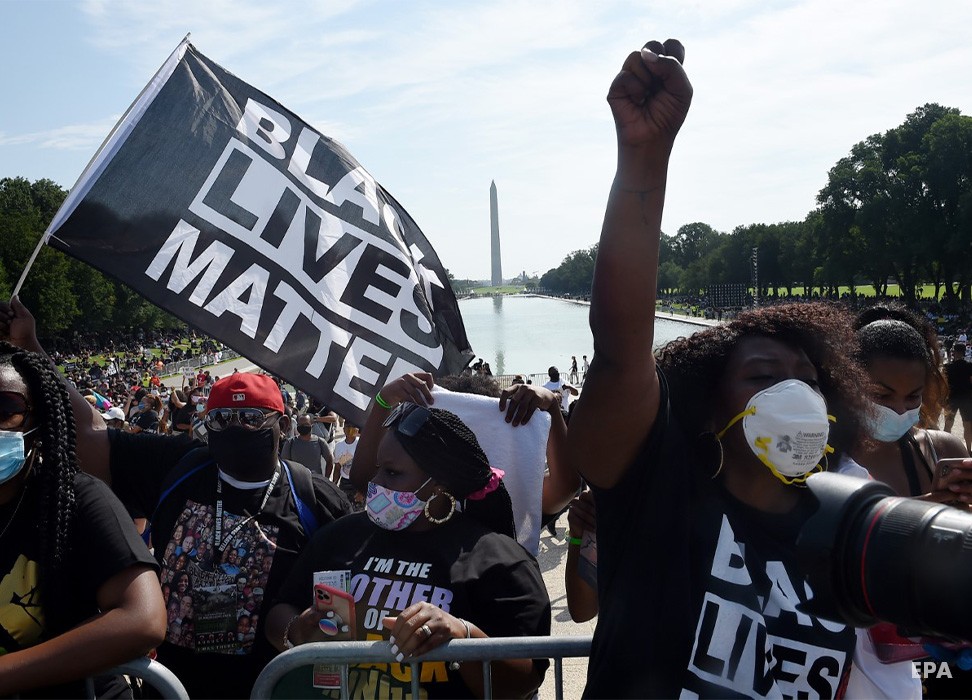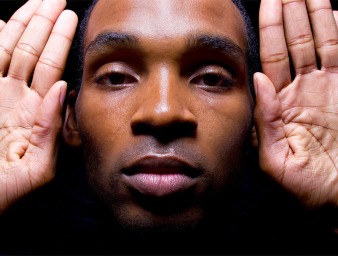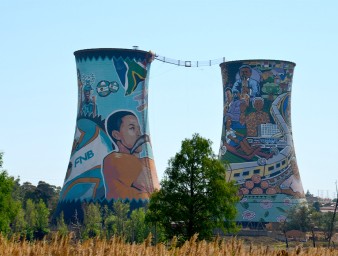HC: "We cannot sit by and continue to watch history repeat itself"
25 May 2022

It´s been two years since the killing of George Floyd in Minneapolis, the United States, sparked protests calling for racial justice and an end to police brutality against Africans and people of African descent.
UN High Commissioner for Human Rights Michelle Bachelet called on States not to “sit by and continue to watch history repeat itself.”
“I urge States to reimagine and reform their policing and criminal justice systems, placing human rights at the centre of these efforts,” Bachelet said, adding that new models of justice were needed to protect and serve everybody, without discrimination.
Bachelet made her call during a recent panel discussion on addressing and preventing racial discrimination in the criminal justice system on the sidelines of a meeting of the Commission on Crime Prevention and Criminal Justice in Vienna. UN Human Rights has been working with other UN bodies, NGOs and individuals to address racial discrimination against Africans and people of African descent and to respond to manifestations of systemic racism against people of African descent in the criminal justice system.
Four-point agenda towards racial justice and equality
In July of last year, the High Commissioner presented to the Human Rights Council the Agenda Towards Transformative Change for Racial Justice and Equality for Africans and people of African descent. The four-point agenda aims at ending systemic racism and human rights violations against Africans and people of African descent.
Bachelet reminded the panel that the agenda sets out 20 actionable recommendations that provide a roadmap for progress.
“It is rooted in the obligations of States under international human rights treaties and their political commitments,” she said. It is also rooted in the lived experiences of people of African descent. Behind the data and the reports are the faces and daily lives of people and families, she added.
The discussion brought together the High Commissioner, as well as UN experts, States and NGOs to reflect on progress made and challenges ahead regarding racial justice in law enforcement and the criminal justice system.
The High Commissioner highlighted that nowhere is discrimination more visible than in law enforcement and the criminal justice system, with an alarming picture of system-wide, disproportionate impacts on people of African descent in some countries, with excessive numbers of Africans and people of African descent in prison populations and Blackness being associated with criminality and delinquency.
Lack of accountability for law enforcement officers is also an enormous obstacle. And families of those who died after an encounter with law enforcement officials have expressed a profound lack of trust in the criminal justice system.
Racial discrimination in law enforcement and the criminal justice system cannot be separated from systemic racism. Only by addressing both – and the legacies they are built on – can we succeed in eliminating it.” UN High Commissioner for Human Rights Michelle Bachelet.
Ghada Waly, Executive Director of the UN Office on Drugs and Crime (UNODC), said criminal justice institutions had a role to play in ending impunity, preventing discrimination and supporting victims’ access to justice.
“Building a world beyond racism and discrimination, where we can all exercise our human rights without fear or favour, depends on crime prevention and criminal justice institutions that work for everyone,” she said.
Waly also said that a comprehensive criminal justice approach to address racial discrimination must encompass a range of interventions, from promoting access to justice for victims and witnesses of crime motivated by discrimination and hate, to promoting wider inclusion of people of African descent in criminal justice institutions and professions.
In 2021, the Human Rights Council established the International Independent Expert Mechanism to Advance Racial Justice and Equality in the context of Law Enforcement for Africans and people of African descent.
Yvonne Mokgoro, a former judge of South Africa´s Constitutional Court and chairperson of the new Expert Mechanism, explained that the body is tasked with examining systemic racism in law enforcement and the criminal justice system and its root causes, as well as excessive use of force, racial profiling and other human rights violations by law enforcement officials against Africans and people of African descent.
Mokgoro said the Expert Mechanism will submit in September its first report to the Council, which will include recommendations and focus on the importance of the collection and use of data disaggregated by race or ethnic origin to drive and assess responses to systemic racism in law enforcement and the criminal justice system.
The High Commissioner will also submit a report at the September session of the Council, as UN Human Rights continues to report and take action globally towards transformative change for racial justice and equality.
Building trust by centering communities
Ojeaku Nwabuzo, senior research officer at the European Network Against Racism, said efforts to address racial discrimination in the criminal justice system must place the voices of people of African descent and other communities at the heart of these discussions.
Nwabuzo mentioned that disproportionately high incarceration rates among people of African descent and little access to justice have contributed to a lack of trust in the criminal justice system.
“One question we need to ask ourselves is: How can communities feel safe and protected?” Nwabuzo said.”
Nada Al-Nashif, Deputy High Commissioner for Human Rights, said the High Commissioner´s recommendations were a pathway for States to undertake profound introspections and encourage the participation of people of African descent and affected communities to reimagine policing and reform the criminal justice system from a human rights perspective.
She said the High Commissioner will continue to work with UNODC and other UN partners, including through the UN Network on Racial Discrimination and Protection of Minorities, while calling on governments to carry out concrete measures with specific, time-bound commitments developed through national dialogues with affected communities.
“Only approaches that tackle both crimes of the past, violations and the shortcomings of the present will help to address systemic racism effectively and can succeed in eliminating it,” Al-Nashif said.



